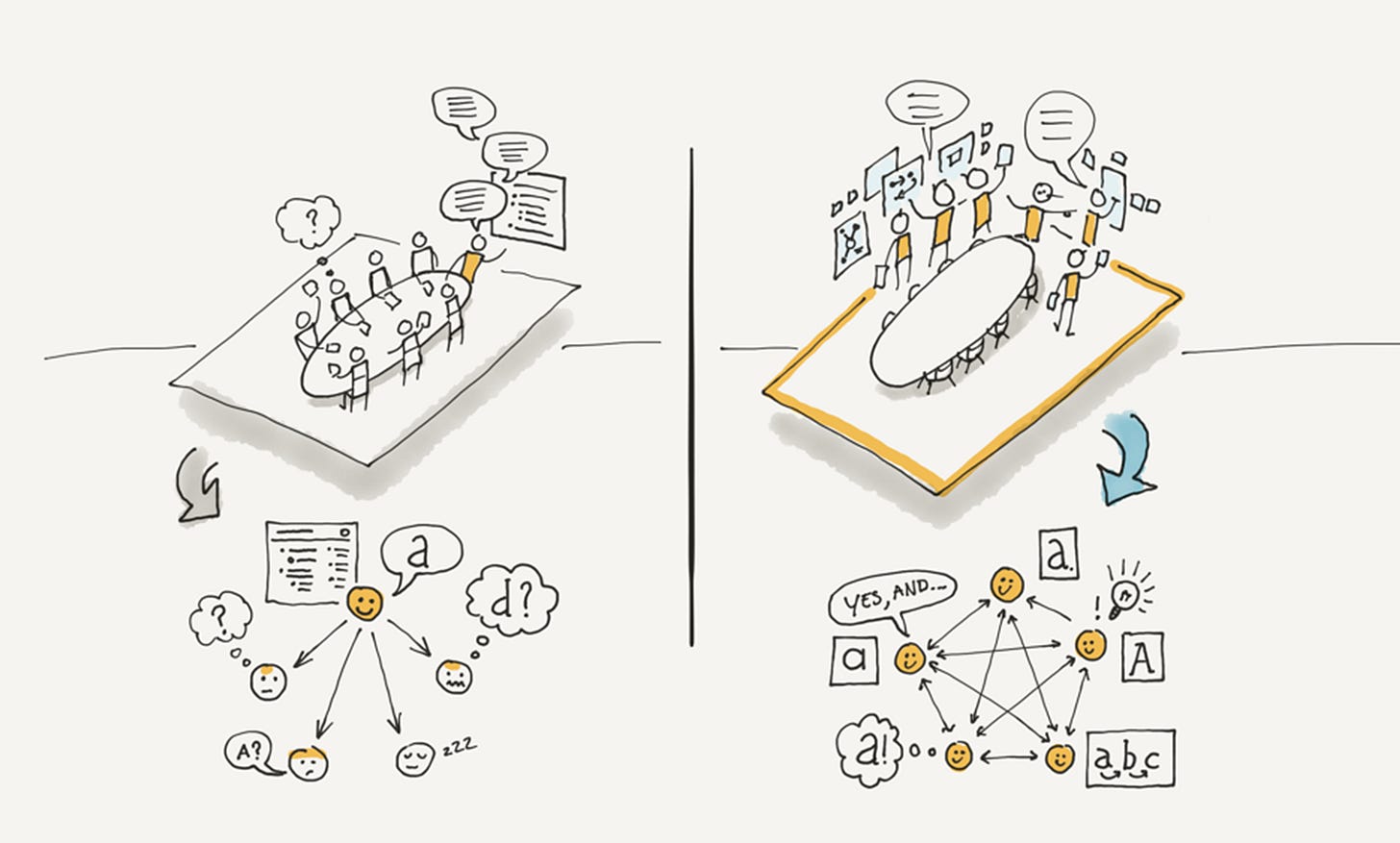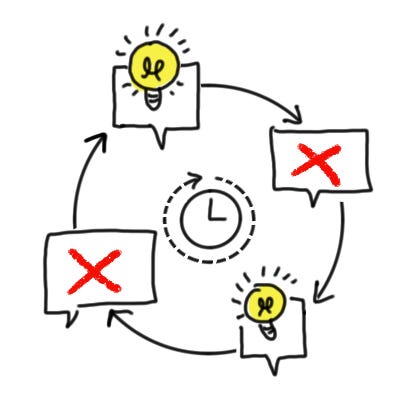Stop running meetings like workshops (And vice versa)
Meetings and workshops often get mixed up. They both involve people coming together to discuss something, so it’s easy to assume they work the same way. But they don’t.
We’ve all been there—stuck in a meeting that seems to drift aimlessly. What started as a simple discussion has spiraled into a deep dive into details, leaving everyone frustrated and unsure of what was actually decided.
The problem? We often confuse meetings with workshops. They’re not the same, and when we treat them as interchangeable, we set ourselves up for wasted time and unproductive discussions.
A meeting is meant for updates, quick decisions, or refining details—but only when there is a shared understanding of the issue. If alignment gaps are small, a meeting can help confirm direction. But when misalignment is significant, a meeting won’t fix it. Instead, the discussion stalls, people talk past each other, and no real progress is made.
That’s because meetings aren’t designed for deep exploration. A workshop, on the other hand, allows space to uncover misalignment, structure ideas, and bridge perspectives before jumping into solutions. When meetings and workshops are mixed up, discussions either go too deep or too fast—diving into unnecessary details before the real issue is clear—or stay too surface-level, avoiding critical conversations that need exploration.
If your meeting keeps circling the same issues without resolution, it’s a sign: this isn’t a meeting problem—it’s a workshop need.
Why Meetings Often Fall Apart
We’ve all been in a meeting where the discussion jumps between challenges and solutions, where some people dominate. In contrast, others stay silent, or where ideas keep flowing but decisions never materialize. This happens when we try to do too much in a meeting that isn’t structured for it.
Here’s what goes wrong when meetings and workshops get blurred:
Rabbit Hole Conversations – We start discussing a challenge, but suddenly, we’re debating tiny details. We dive deep into specifics before even agreeing on the big picture. When we surface, we’ve lost an hour and gained nothing.
Untapped Potential – Some voices dominate, while others remain unheard. This is especially common in virtual meetings, where people disengage. If alignment is weak, a meeting isn’t enough—you need structured exploration to uncover and bridge gaps.
Idea Avalanches – We generate endless ideas but have no way to filter or prioritize them. Without a structured process, even great suggestions get lost in the chaos, leaving people frustrated and without clear next steps.
Meetings vs. Workshops: Choosing the right format
So, how do you know whether you need a meeting or a workshop?
If the goal is to share information, align on decisions, or give quick updates, a meeting is enough—as long as it’s structured properly. But if there’s a deeper challenge to explore, a misalignment to fix, or solutions to develop, a workshop is the better tool because it allows for structured exploration without losing focus.
That doesn’t mean workshops should turn into endless discussions. The best workshops allow room for exploration while keeping the goal clear. If a topic derails the conversation or delves too deeply into details, park it and move on. The goal is not to discuss everything—it’s to make meaningful progress.
A meeting should be short and outcome-driven. A workshop should be structured, interactive, and disciplined to stay on track. The key is knowing which one you need before you start.
Rethinking collaboration
With remote work, AI-driven note-taking, and growing meeting fatigue, it’s time to rethink how we collaborate. More meetings won’t fix a problem if people aren’t aligned. And not every challenge can be solved in an hour. A structured workshop is the better way forward if the issue requires exploration.
So before scheduling time with your team, ask yourself:
Are we making decisions, or do we need to uncover gaps first?
Are we fine-tuning details, or do we need to explore different perspectives?
Because a meeting might not be the answer.






